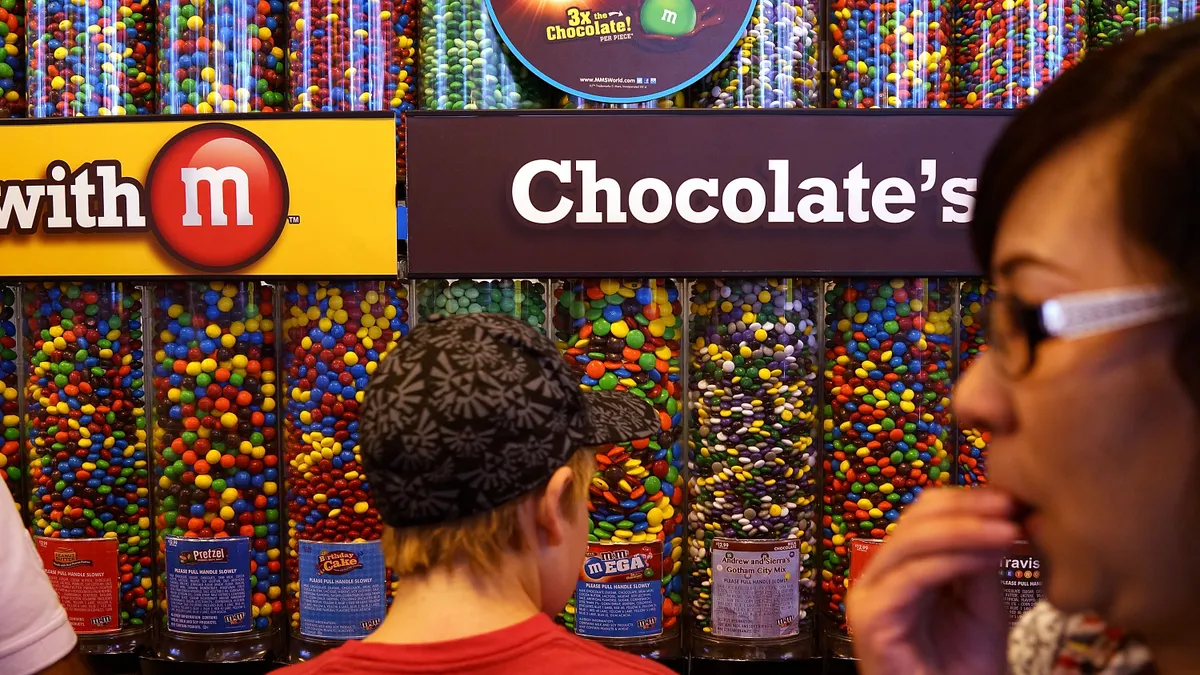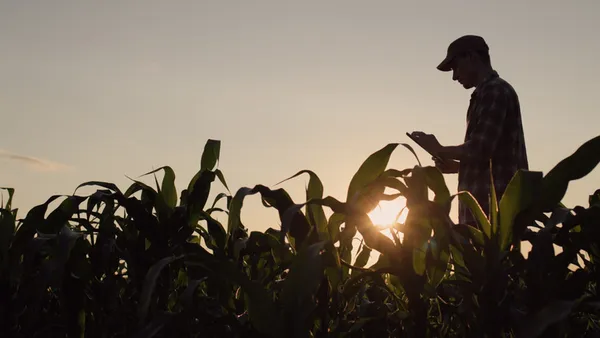Dive Brief:
- Confectionery giant Mars Inc. is investing $47 million over three years to reduce the carbon footprint of the dairy used in products like M&M's and Snickers.
- The candy maker will work with major dairy co-ops including Fonterra and Land O'Lakes to tackle issues with the highest carbon footprint: methane from cow burps, manure management and feed production.
- The plan is part of the company's $1 billion commitment to halve total greenhouse gas emissions by 2030. Dairy is the second-largest contributor to the carbon footprint of Mars' snacking business.
Dive Insight:
Mars is tapping some of the world's largest dairy producers to invest in a wide range of new innovations and encourage farmers to adopt more climate-smart practices.
"Doing our part to keep our planet healthy is an absolute non-negotiable for us at Mars," Amanda Davies, who leads research and development, procurement and sustainability at Mars Snacking, said in a statement. "But our vision for more sustainable dairy will only become a reality with the support and actions of farmers and our suppliers."
Many of the steps Mars is taking are around feed and feed production. Among other things, Mars is exploring sourcing seaweed-based supplements to tackle emissions from cow burps and is launching a large feed additive project in Poland.
The company is also looking to reduce feed emissions through the promotion of regenerative agriculture for dairy feed crops, including by encouraging the use of cover crops and no-till methods. In the U.S., Mars is working with Land O'Lakes on manure management projects including lagoon covers and solid separators.
As Mars looks to encourage a pathway to dairy sustainability at scale, it is also investing in several pilot programs testing new practices and technologies. The company has plans to open three pilot "net zero" farms in Germany with supplier DMK and to work with Netherlands-based FrieslandCampina to create a sustainable dairy development program for farmers to refine and scale technologies.
More than 200,000 cows and 1,000 farms supply Mars' confectionery brands, which include Twix and MilkyWay. Davies said Mars' plan aims to put "millions of dollars directly back into the pockets of farmers through our contracts to help them make climate smart changes."
"Together, I know that we can forge a path that helps address climate change head on and contributes to reshaping our wider industry for a more sustainable future," she said.











